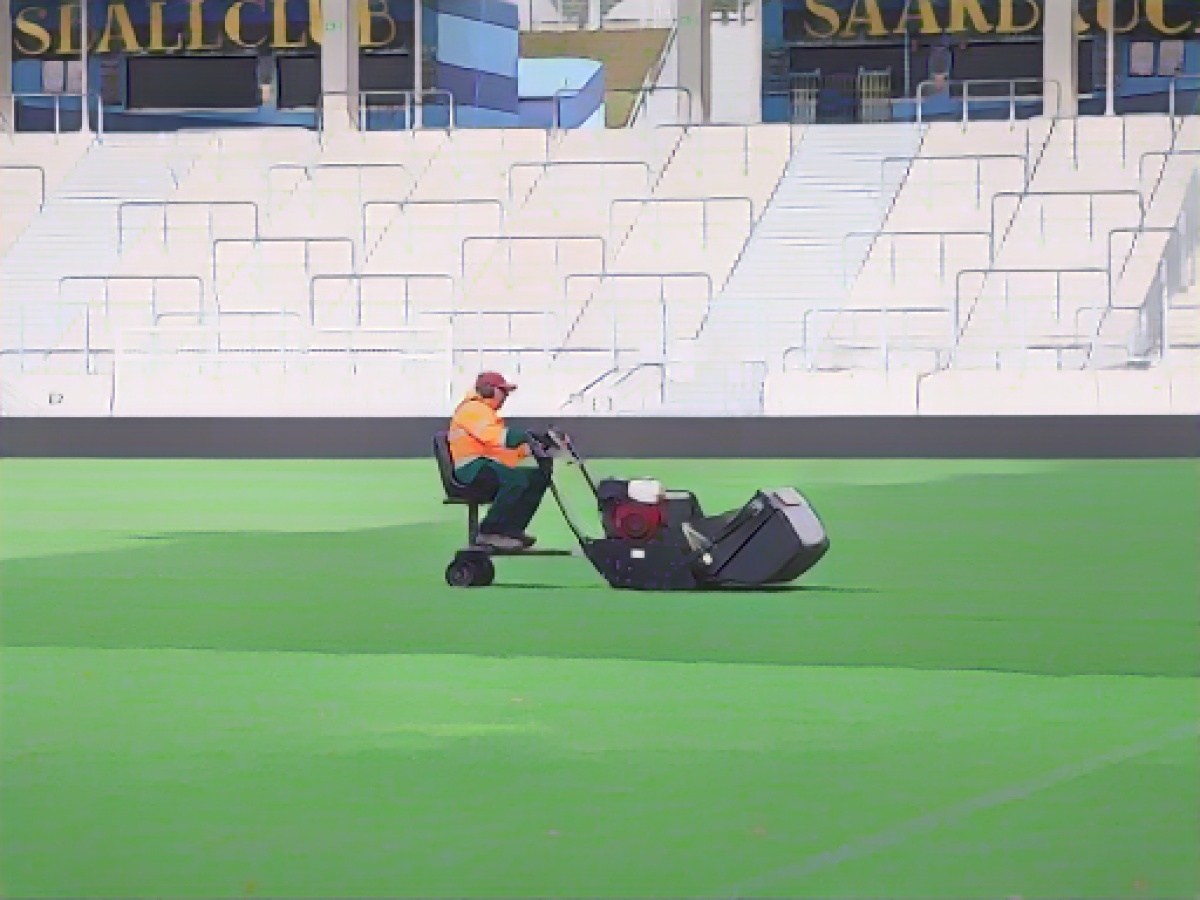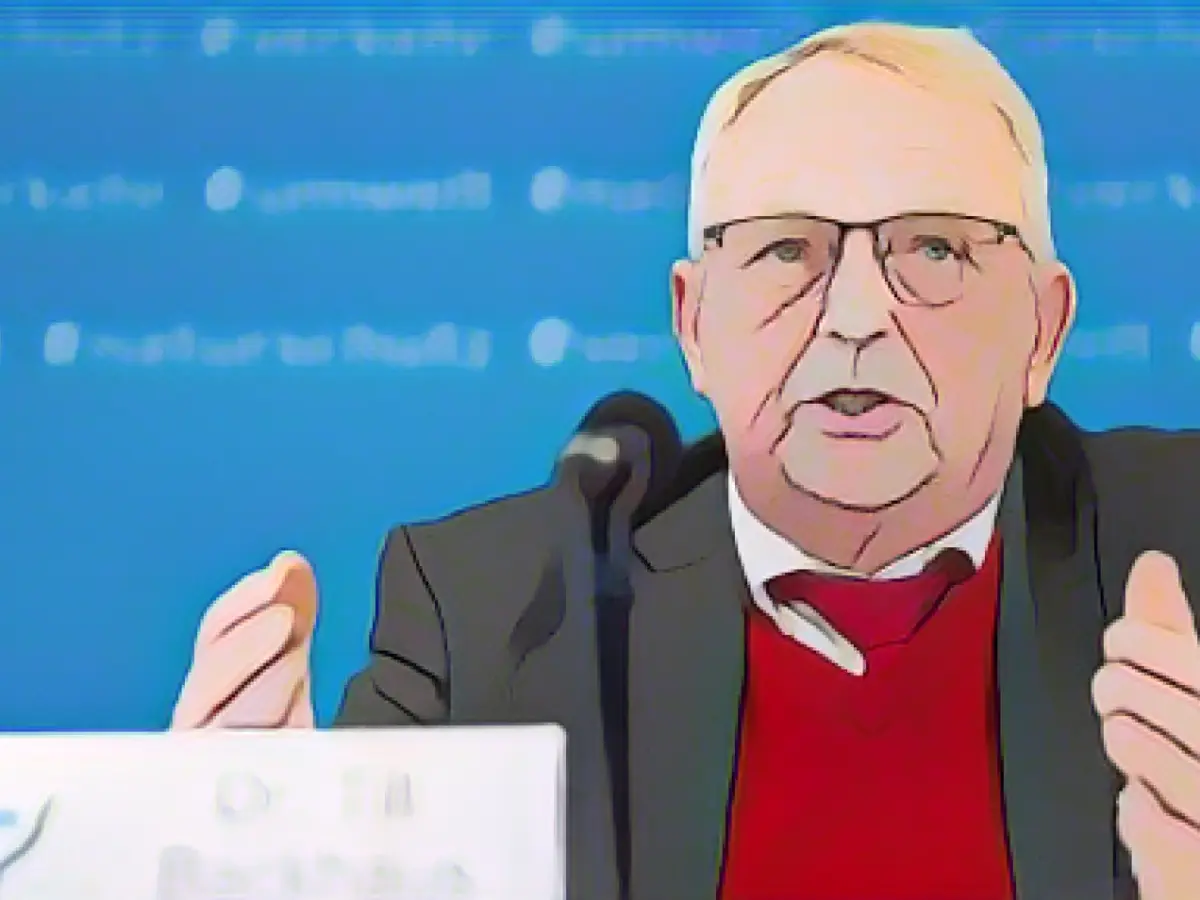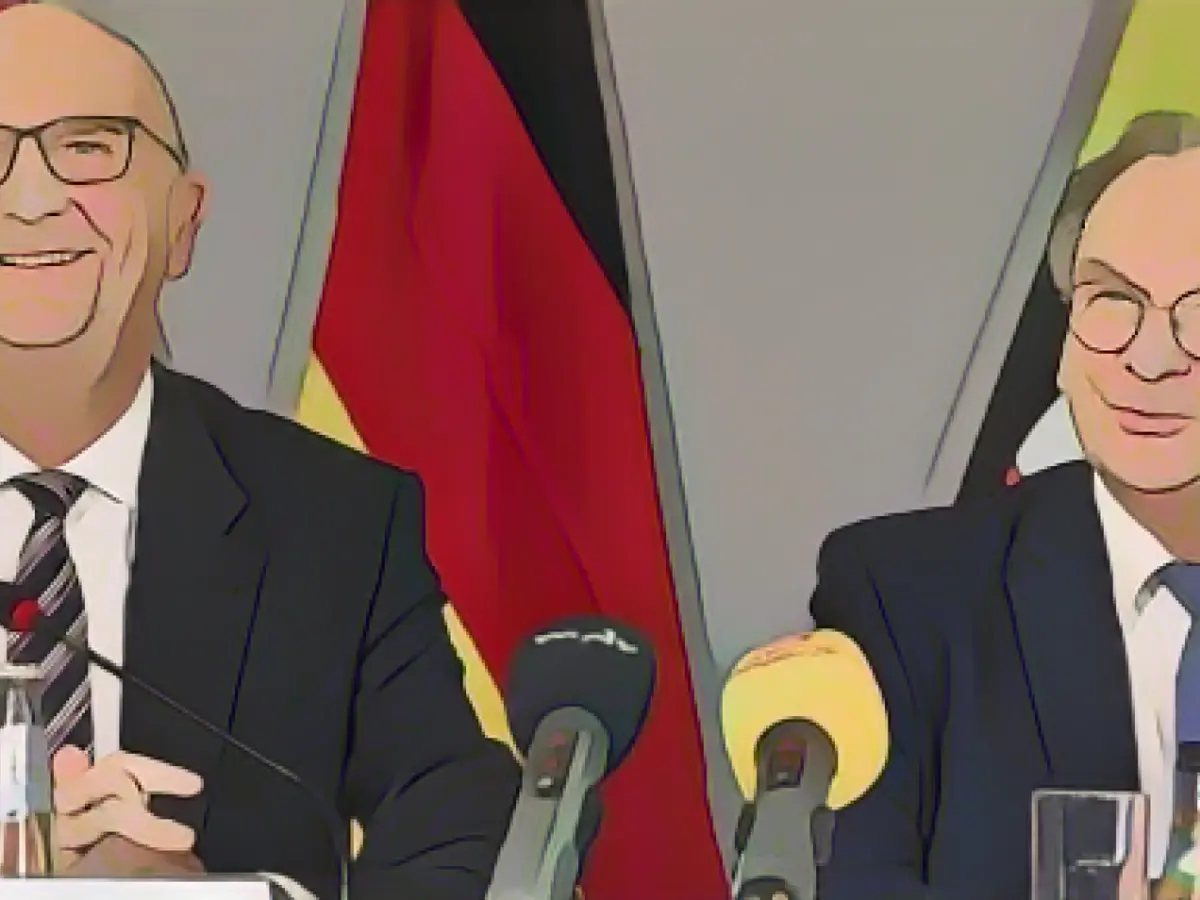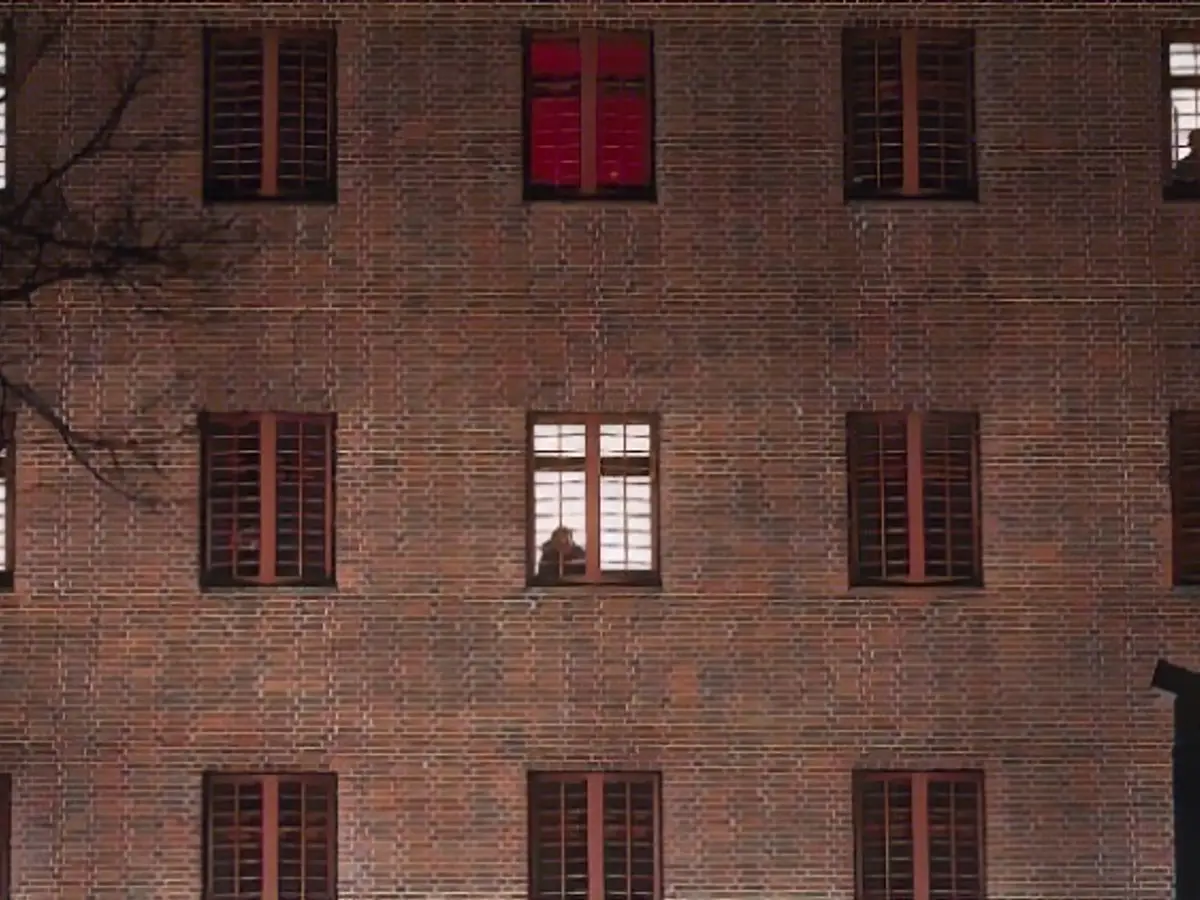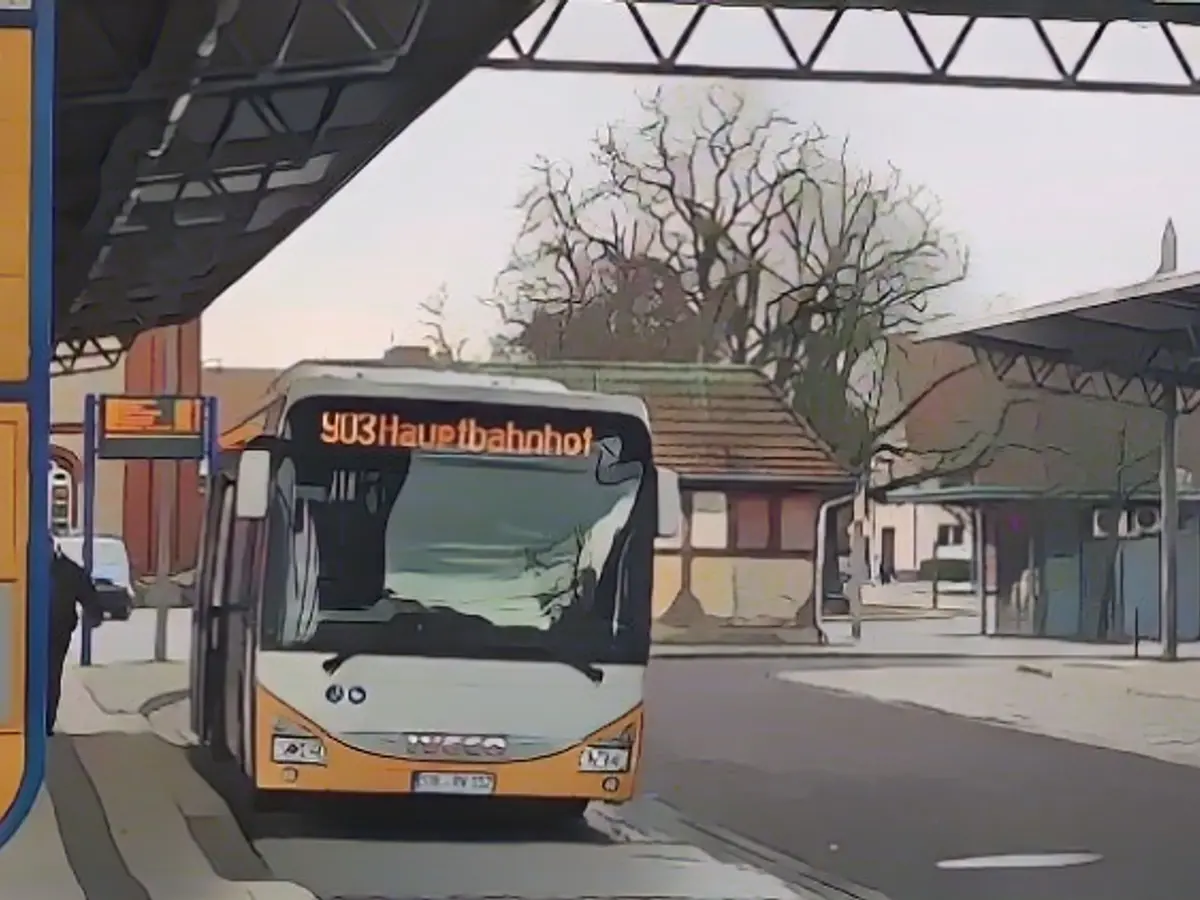Striking Groundskeepers: "We're Not Second-Class Citizens"
Holger Schmidt is livid. The suggestion from Hamburg's Finance Senator Andreas Dressel (SPD), as the head of Tarifgemeinschaft der Länder (TdL), that cash-strapped public sector workers simply apply for housing benefits as compensation enrages him. "That's just uncalled for, plain and simple. We're not second-class citizens."
Schmidt, a groundskeeper for the City of Hamburg at Vogt-Kölln-Straße sports facility in Stellingen, is typically responsible for ensuring games run smoothly. But on this particular Saturday, he dons a yellow vest at the Niendorf district gymnastics and sports club, where he and fellow colleagues are embarking on a two-day warning strike—the first of its kind in Germany following the second round of collective bargaining for the public sector in the federal states ending unfruitfully on Friday.
The groundskeepers initially stand around almost timidly, needing to be rallied together before coming together. A typical St. Pauli call-to-action can be heard over the speakers: "Come on over here, guys. You'll get the same as the next door." It's a special occasion for the employees, as Detlev Meyer, groundskeeper at Hammer Park sports facility and member of the sports groundskeepers collective bargaining committee, points out. "For the first time in the history of the Free and Hanseatic City of Hamburg, the state sports groundskeepers are on strike."
Burak Solat, his colleague from Sternschanzenpark, supports the sentiment. "We work 50 hours a week, weekends, public holidays—we're always there," he states. "The pay is far too low for that." Meyer highlights some peculiar employment contracts from the 1960s still in use today. "I have a wife who works for me. That's what I signed up for, and I get the money, not her." The same holds true for pension points. It's "bizarre, but that's how it is," he admits.
About 50 to 60% of sports facilities and more than 200 soccer matches are predicted to be affected by the warning strike on Saturday, and Meyer, easily recognizable with his bright red woolly hat among the strikers, acknowledges that one day of strike action may not be overly impactful. However, he emphasizes this is only the beginning: "It will likely have to hurt first, and perhaps even jeopardize the scheduling for the 2024 European Championships." In any case, the groundskeepers are ready for this showdown.
In response to the threat of numerous match cancellations in Hamburg amateur soccer, the Hamburg Football Association (HFV) remains calm. "We're going to take our time on Monday to get an idea of the situation," notes HFV President Christian Okun. Only municipal sports grounds are affected, and there are many pitches managed by clubs, explaining Okun.
The warning strike by sports groundskeepers marks the beginning of a wave of stoppages in the public sector of the federal states. The trade unions are demanding a 10.5% pay raise for employees over a 12-month collective bargaining period, with a minimum increase of 500 euros, as well as a monthly bonus of 300 euros in city-states like Berlin, Hamburg, and Bremen. The demands align with the wage agreement reached in April 2025 for the federal government and local authorities.
The collective bargaining association of the German states, led by Hamburg Finance Senator Dressel, has already acknowledged that the demands are excessive. "The 20.7 billion euro volume of the demands is unaffordable," states Dressel. The third round of negotiations has been agreed upon for December 7.
On Saturday, during the ongoing warning strike by sports groundskeepers, the unions made it clear that they won't back down. While Schmidt, Meyer, Solat, and their colleagues continue paralyzing sports facilities, Verdi announces a much more massive warning strike for Tuesday, involving employees from state companies, specialist authorities, schools, district offices, unemployment offices, and the fire department.
Federal states should consider the repercussions of their stance on tariffs and public service employees. The trade unions in federal states are preparing for a larger-scale strike, following the warning strike by sports groundskeepers, affecting not only sports facilities but also state companies, specialist authorities, schools, district offices, unemployment offices, and the fire department.
Enrichment Insights:
The current collective bargaining negotiations in the public sector in Germany encompass various workers—including those in local transportation services—and are ongoing at both federal and state levels. Strikes have been announced due to failed negotiations and increased demands from the Ver.di trade union for better wages and working conditions.
The first round of negotiations on January 24, 2025, saw no results, leading to announced strikes in municipal transport companies in the VRR area on February 7, 2025. These strikes may impact local public transport services, causing disruptions for commuters and affected passengers. However, railway companies like Deutsche Bahn are unaffected.
Future negotiations are slated for February 17-18, 2025, in Potsdam, with the third round scheduled for March 14-16, 2025, also in Potsdam. The outcomes of these negotiations are not detailed in the provided sources, but the strikes underscore a significant level of dissatisfaction among public sector workers and union representatives.
